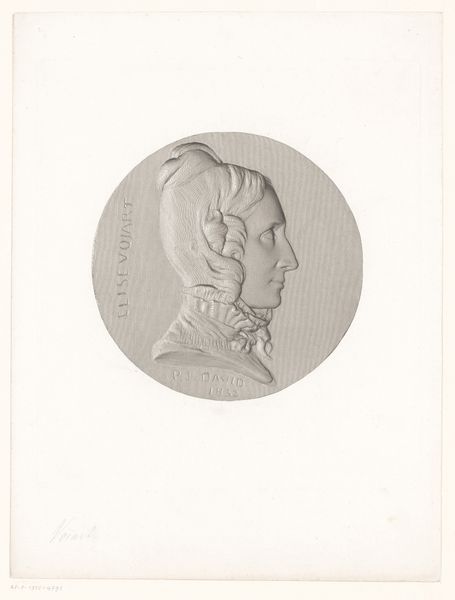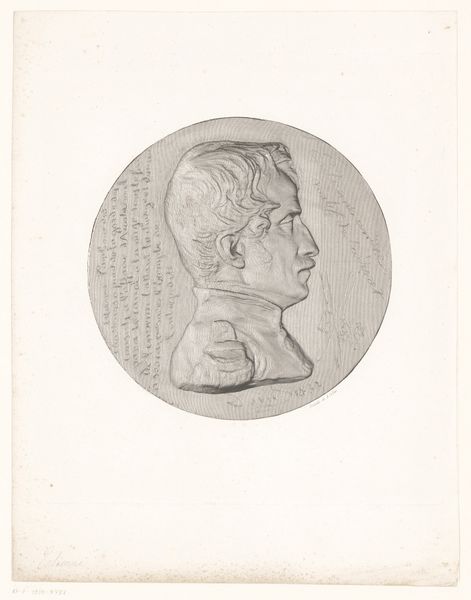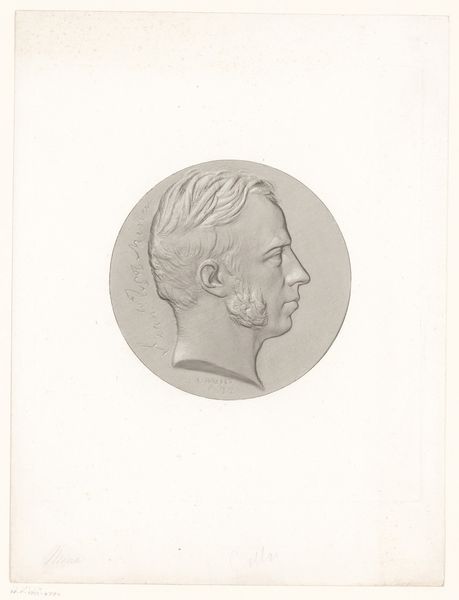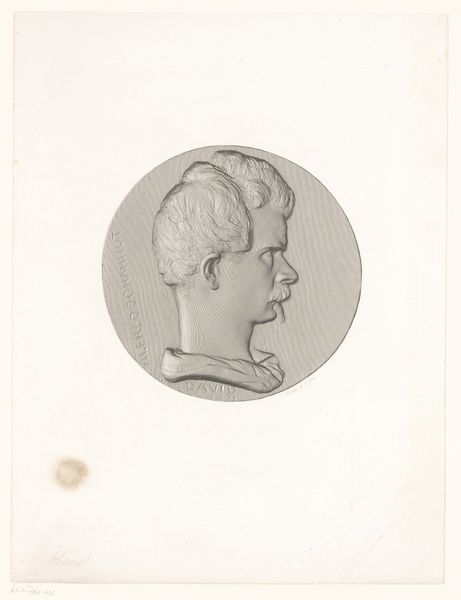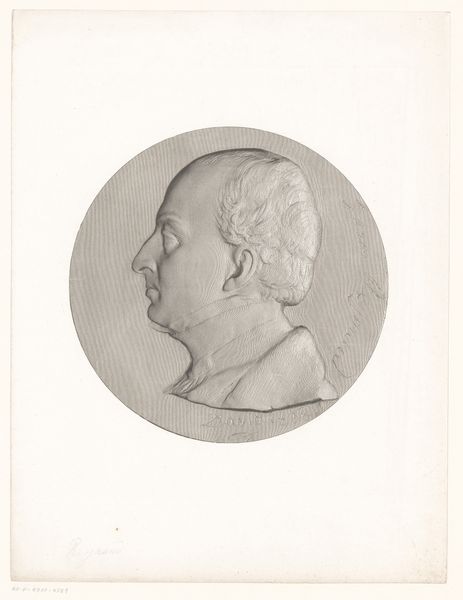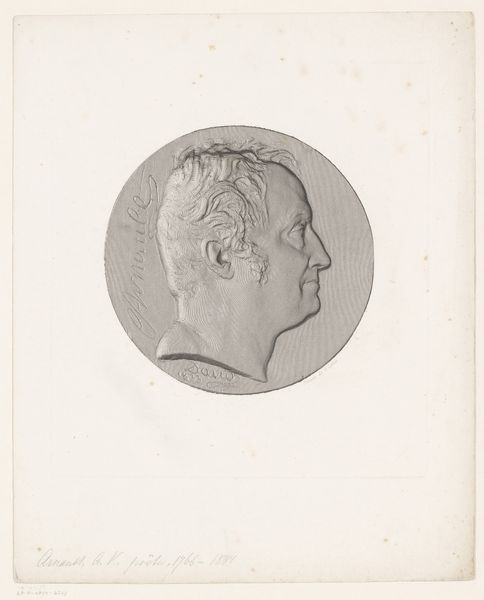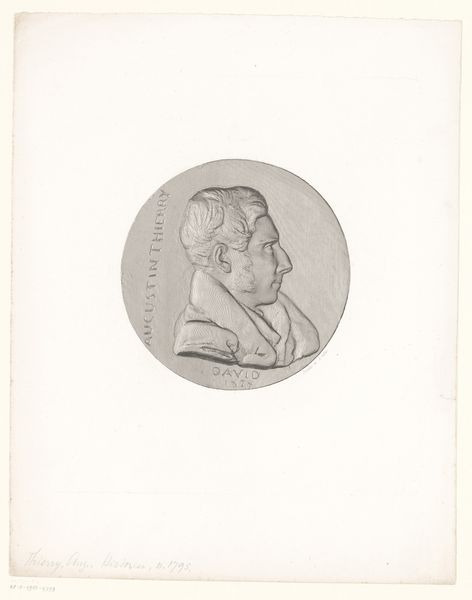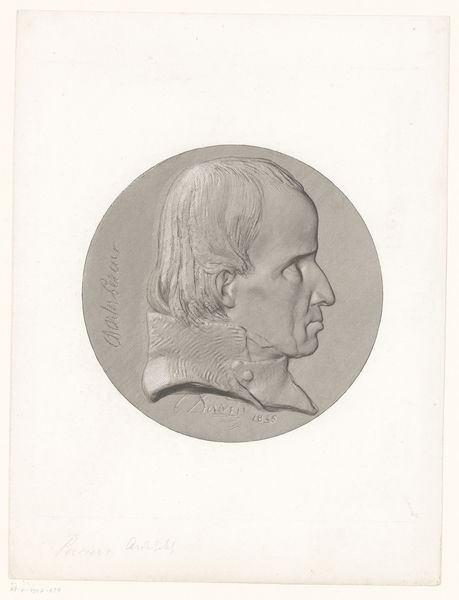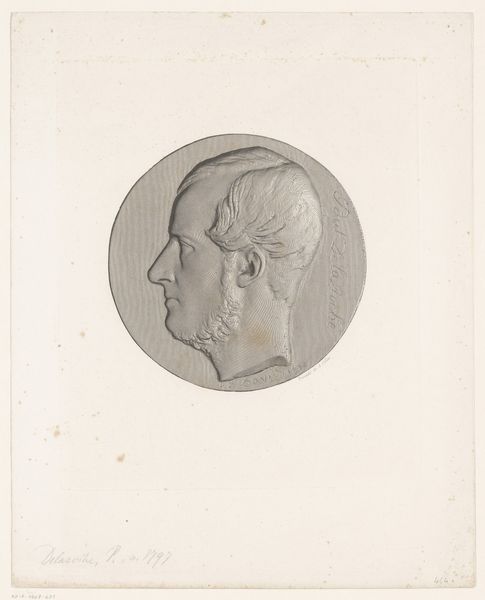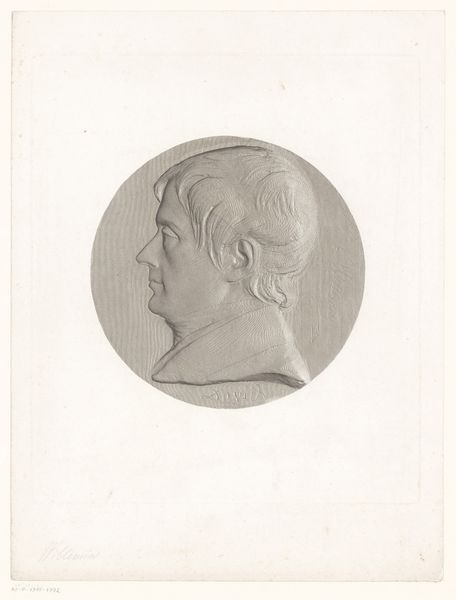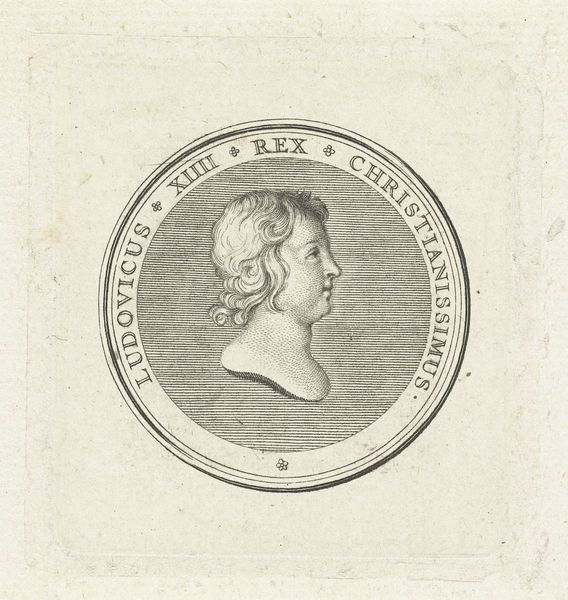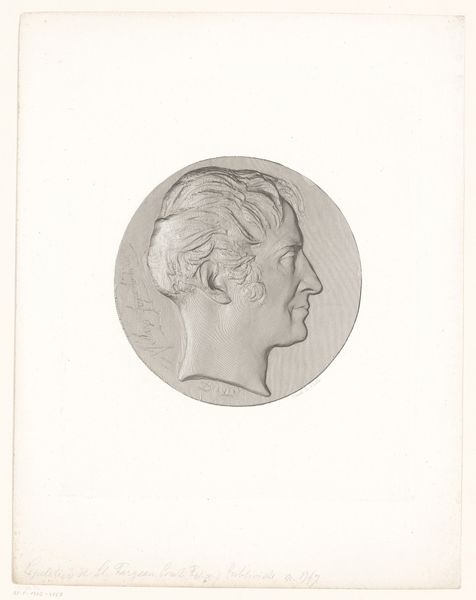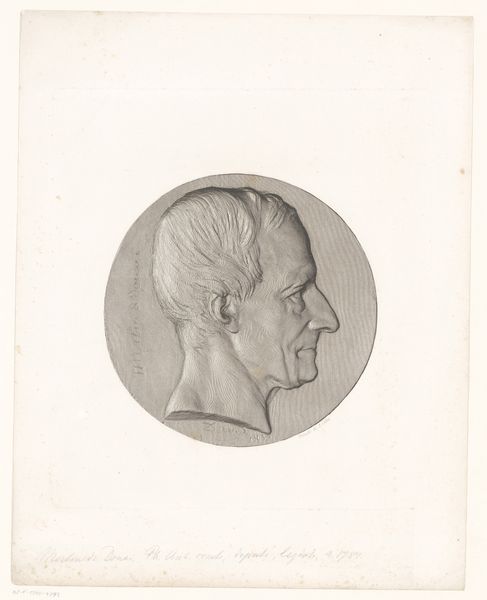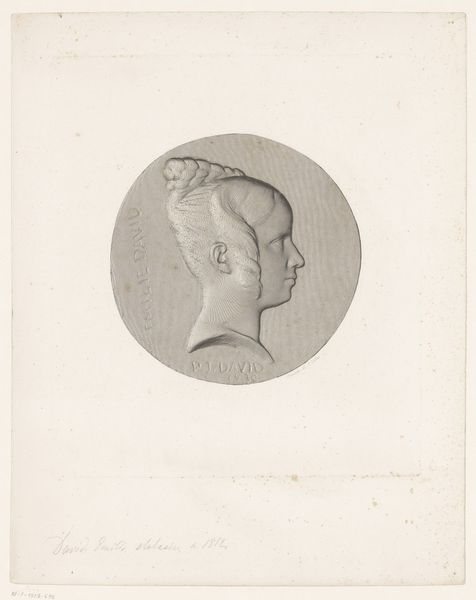
print, engraving
#
portrait
#
neoclacissism
# print
#
old engraving style
#
pencil drawing
#
limited contrast and shading
#
line
#
history-painting
#
engraving
#
realism
Dimensions: height 241 mm, width 214 mm
Copyright: Rijks Museum: Open Domain
Editor: This engraving, "Medaille met portret van Jacques Laffitte," created by Achille Collas after 1830, depicts a profile portrait in exquisite detail. The subject is set within a circular frame. It evokes a sense of classical formality. What historical context informs the creation and reception of this work? Curator: It’s crucial to recognize the political climate in France after 1830. Jacques Laffitte was a prominent banker and politician, instrumental in financing the July Revolution of 1830 that brought Louis-Philippe to power. This medal, likely commissioned or created to celebrate Laffitte's role, needs to be viewed as a piece of political imagery. It serves as propaganda, intended to legitimize the new regime and portray Laffitte as a key figure. Notice the neoclassical style; it evokes Roman imagery and lends an air of timelessness and gravitas. What does that style communicate about the values the artist wanted to project onto Laffitte? Editor: It’s like he’s trying to cast Laffitte as a modern-day Roman statesman, conveying ideas of civic virtue. But was there any public criticism or dissenting view of this kind of idealized imagery? Curator: Absolutely. The public sphere was rapidly evolving at that time. With increased literacy and the growth of the press, alternative narratives could emerge. One should explore who commissioned this engraving, its intended audience, and where it was distributed. These elements significantly impacted its reception. How do you think its message would have resonated amongst different social classes, for instance? Editor: It's interesting to think about the diverse interpretations depending on the social standing. I now understand that artworks can be interpreted and received very differently, especially depending on social factors and historical contexts. Curator: Precisely! It is very relevant when dealing with political imageries. I will remember that next time.
Comments
No comments
Be the first to comment and join the conversation on the ultimate creative platform.
